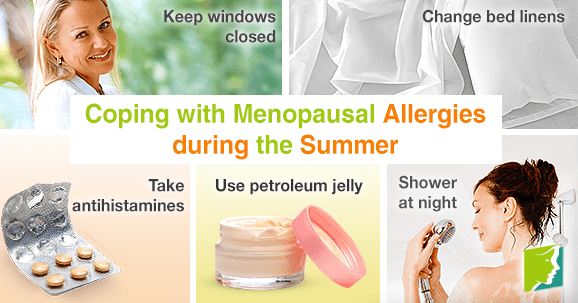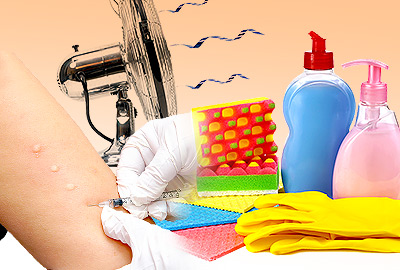During menopause, many women suffer from newly triggered allergies. This is due to hormonal fluctuations, which can weaken the immune system and provoke negative reactions to harmless particles.
The body produces antibodies to combat these particles, leading to a runny nose, sneezing, and rashes that are commonly associated with allergies during the summer. Fortunately, there are things you can do to manage your allergy symptoms. Continue reading to discover the top six ways to ease suffering from menopausal allergies during summer.
Keep Windows Closed
If you are able to, stay indoors when you are most vulnerable to an allergy trigger, particularly during the early morning and evening. When you are indoors, keep your windows closed to prevent any allergenic particles that can cause a flare-up from entering your home.
Take Antihistamines
The histamine your body produces in an effort to fight what your immune system perceives as a threat is what's behind the irritating symptoms of an allergic reaction. Taking antihistamines can combat this, but be sure to take them before your body reacts. Once histamine production has begun, antihistamines will not reverse it.
Change Bed Linens
Pollen can stick to your bed sheets, triggering a reaction in the middle of the night. The best way to deal with this is to change and wash your bed sheets on a regular basis. If you can, dry your sheets indoors rather than outside to prevent any other particles from sticking to them.
Shower at Night
One of the most irritating parts of suffering menopausal allergies during summer is that allergen particles, like pollen, can cling to your clothes and hair. Showering and washing your hair at night can rid you of them and lower your chances of suffering an allergic reaction during the evening or when you are already asleep.
Use Petroleum Jelly
Placing a spot of petroleum jelly at the base of your nostrils can attract particles like pollen before you are able to breathe them in. This is a particularly good idea if you have to be outdoors when the pollen count is at its highest.
Wear Sunglasses
Sunglasses not only protect your eyes from the damaging effects of the sun's glare, they can keep any grass or pollen particles away from your eyes. In addition, if your eyes do get exposed, keeping them covered will lessen the effects of them watering, itching, or stinging.
Many women struggle to understand why they begin suffering from new or exacerbated allergies during menopause. Fortunately, there are things you can do to help and reduce your symptoms. By following the six steps above, you should be able to reduce the stress and irritation of menopausal allergies during summer.
Sources
- National Health Service UK. (2014). Allergies - Symptoms. Retrieved October 11, 2013, from http://www.nhs.uk/Conditions/Allergies/Pages/Symptoms.aspx
- National Institute of Allergy and Infectious Diseases. (2012). Pollen Allergy Retrieved October 14, 2013, from http://www.niaid.nih.gov/topics/allergicDiseases/understanding/pollenallergy/Documents/pllenAllergy.pdf
- Virginia Department of Health. (n.d.). Pollen Attack - How to Minimize Seasonal Allergies. Retrieved October 14, 2013, from http://www.commonhealth.virginia.gov/documents/Pollen.doc


